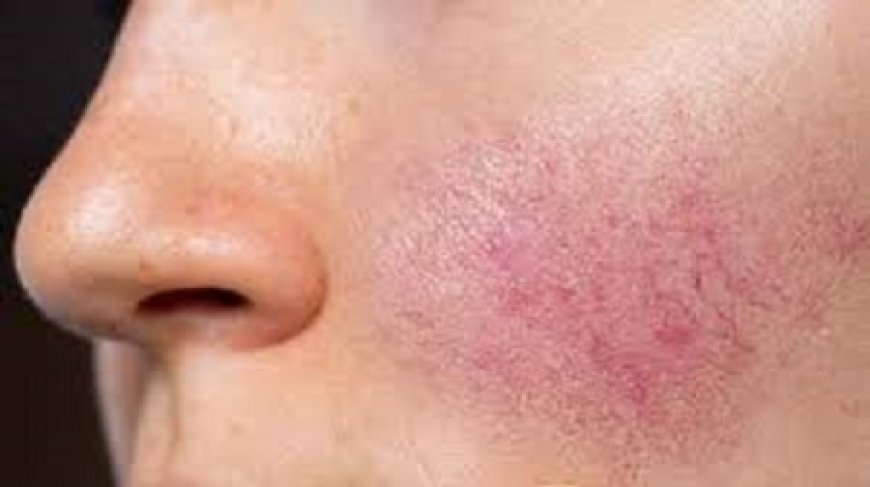Expert Rosacea Care in Abu Dhabi: Find Relief
Find relief from rosacea with expert treatment options in Abu Dhabi. Restore your skin's health and confidence with specialized care.

Living with rosacea can be challenging, especially in the hot and sunny climate of Abu Dhabi. The redness, visible blood vessels, and sometimes painful bumps associated with rosacea can be exacerbated by environmental factors common in this region. However, finding expert care in Abu Dhabi can help you manage your symptoms effectively and find relief. Here’s how you can benefit from professional guidance and treatment to improve your skin health.
Understanding Rosacea
What is Rosacea?
Rosacea treatment in Abu Dhabi, Rosacea is a chronic skin condition that primarily affects the face, causing redness, visible blood vessels, and in some cases, acne-like bumps. It can also lead to eye irritation and a swollen, bulbous nose in severe cases. The exact cause of rosacea is unknown, but it is thought to involve a combination of genetic and environmental factors.
Common Triggers
Identifying and avoiding triggers is crucial in managing rosacea. Common triggers include:
- Sun Exposure: UV rays can aggravate rosacea symptoms.
- Heat and Humidity: High temperatures and humidity, typical in Abu Dhabi, can cause flare-ups.
- Spicy Foods and Alcohol: These can increase facial redness and flushing.
- Stress: Emotional stress can worsen rosacea symptoms.
- Skincare Products: Some ingredients can irritate sensitive skin.
Solutions for Managing Rosacea in Abu Dhabi
1. Professional Consultation
- Start with a comprehensive consultation with a dermatologist in Abu Dhabi. A professional assessment will help determine the type and severity of your rosacea, enabling a tailored treatment plan.
2. Customized Skincare Regimen
- Gentle Cleansers and Moisturizers: Use products specifically formulated for sensitive skin. Avoid harsh ingredients that can irritate the skin.
- Sunscreen: Apply a broad-spectrum sunscreen with SPF 30 or higher every day. Physical sunscreens with zinc oxide or titanium dioxide are often recommended for sensitive skin.
- Anti-Redness Treatments: Look for products that contain ingredients like niacinamide and green tea extract, which can help reduce redness and inflammation.
3. Medical Treatments
- Topical Medications: Prescription creams and gels, such as metronidazole, azelaic acid, or ivermectin, can help control symptoms.
- Oral Medications: Antibiotics or other oral medications may be prescribed to manage inflammation and bacterial involvement.
- Laser and Light Therapies: These treatments can effectively reduce visible blood vessels and redness. Intense Pulsed Light (IPL) and pulsed dye lasers are commonly used for rosacea.
4. Lifestyle Adjustments
- Sun Protection: Always protect your skin from the sun. Wear hats, seek shade, and avoid the midday sun.
- Dietary Changes: Identify and avoid foods and beverages that trigger your symptoms.
- Stress Management: Techniques such as yoga, meditation, and regular exercise can help reduce stress-related flare-ups.
5. Regular Follow-Ups
- Regular visits to your dermatologist are essential for monitoring your condition and making necessary adjustments to your treatment plan.
Conclusion
Rosacea can be effectively managed with the right approach and expert guidance. In Abu Dhabi, dermatologists and skincare professionals are equipped with the knowledge and tools to help you navigate your condition. By combining medical treatments, tailored skincare regimens, and lifestyle adjustments, you can achieve clearer, more comfortable skin and enjoy life with greater confidence.
FAQs (Frequently Asked Questions)
-
Can rosacea be cured?
- While there is no cure for rosacea, symptoms can be effectively managed with proper treatment and lifestyle adjustments.
-
Are there any side effects of rosacea treatments?
- Side effects depend on the treatment. Topical treatments may cause mild irritation, while oral medications and laser therapies can have other specific side effects. Discuss these with your dermatologist.
-
Can I wear makeup if I have rosacea?
- Yes, but choose non-comedogenic, fragrance-free products designed for sensitive skin. Mineral makeup is often recommended.
-
Is rosacea more common in certain age groups?
- Rosacea typically affects adults between the ages of 30 and 50, but it can occur at any age.
-
How long does it take to see improvements with rosacea treatment?
- Improvement timelines vary depending on the treatment. Some people see results within weeks, while others may take several months.
Finding expert rosacea care in Abu Dhabi is your first step towards relief. If you have any further questions or concerns, don’t hesitate to consult a dermatologist or skincare professional for personalized guidance and treatment.












